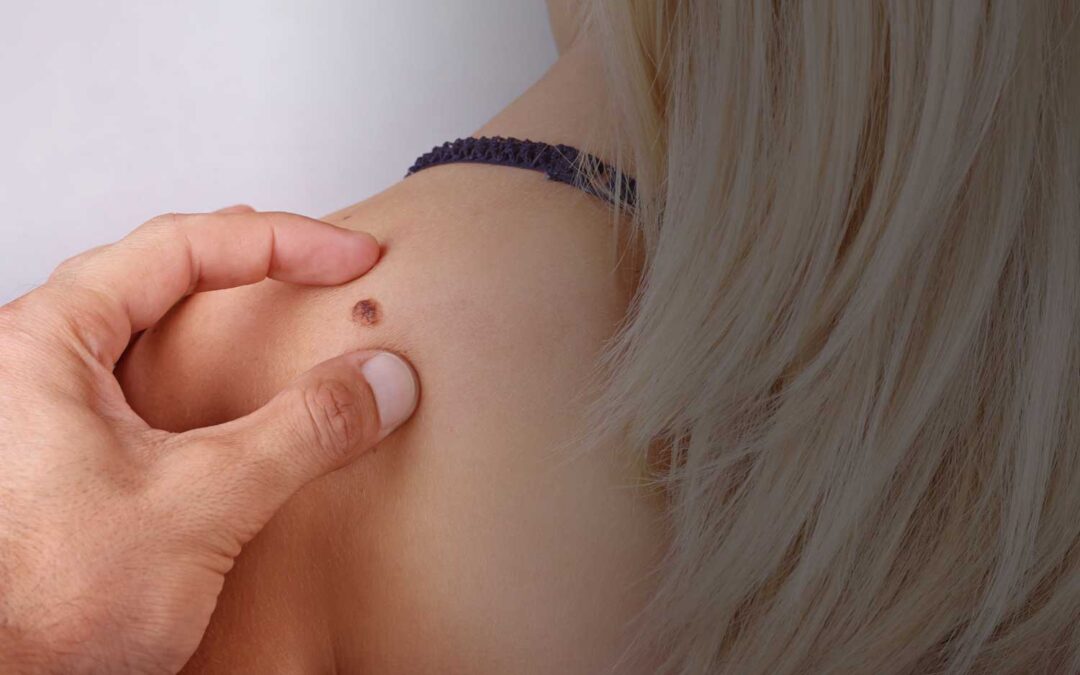Skin cancer is one of the more common conditions we see here at Goldstein Dermatology.
There are three general forms of skin cancer: basal cell carcinoma (BCC), squamous cell carcinoma (SCC), and melanoma. There are well over half a million new cases of BCC and SCC each year in the United States. These lesions, for the most part, are caused by years of sun exposure and sun abuse.
Basal Cell Carcinoma (BCC) usually develops as a round, pearly, and often red bump on the sun-exposed areas of the skin. BCC are known to bleed easily, and typically increase gradually in size. There are also variants which present as large, red, scaly patches, and sometimes even as ulcerations in the skin. Treatment for all such lesions is simple: scraping and burning of the lesions. The cure rate for this type of procedure is well over 90%. If the BCC is on the face, scalp, or neck, however, then a more complicated procedure must to be done called Mohs surgery. This is performed by a dermatological surgeon who specializes in this procedure, and on an outpatient basis. Mohs surgery is performed in order to be certain that the excised lesion does not recur. Yet, regardless of location, the mortality from BCC is extremely low, and is of no cause for undue concern.
Squamous Cell Carcinoma (SCC) also usually develops on sun exposed skin, and often appears to be a raised, hard nodule or warty growth, again with occasional bleeding. Their clinical appearance can vary greatly, and sometimes a biopsy is needed in order to confirm the diagnosis. SCC can be treated right here in our office, with the exception of those on the face, scalp, or neck. These SCC will need a referral for Mohs surgery. The mortality rate for SCC is again extremely low.
Melanoma is the third type of skin cancer we see, and, unfortunately, this type of skin cancer can have significant associated mortality. It can appear on the skin suddenly without warning. The incidence of melanoma is also rising significantly. Because of the potential serious consequences of melanoma, we will discuss melanoma in detail in the next newsletter.
So what can you do to prevent these skin cancers and catch them at an early stage? First, of course, as mentioned before, it is imperative to use an adequate sunscreen with an SPF of at least 30 during all outdoor activities, year-round. Secondly, if you notice a new, bleeding, or changing lesion on your skin, please make an appointment with Goldstein Dermatology as soon as possible to be evaluated. Twice yearly skin exams will also help us recognize such lesions at an early stage when treatment is much easier. Please be assured that the mortality from BCC and SCC is extremely low.
Remember: apply sun screen and report all suspicious, new, or changing lesions to Goldstein Dermatology.


